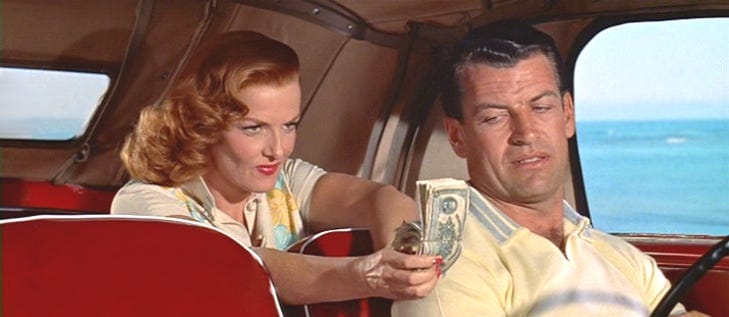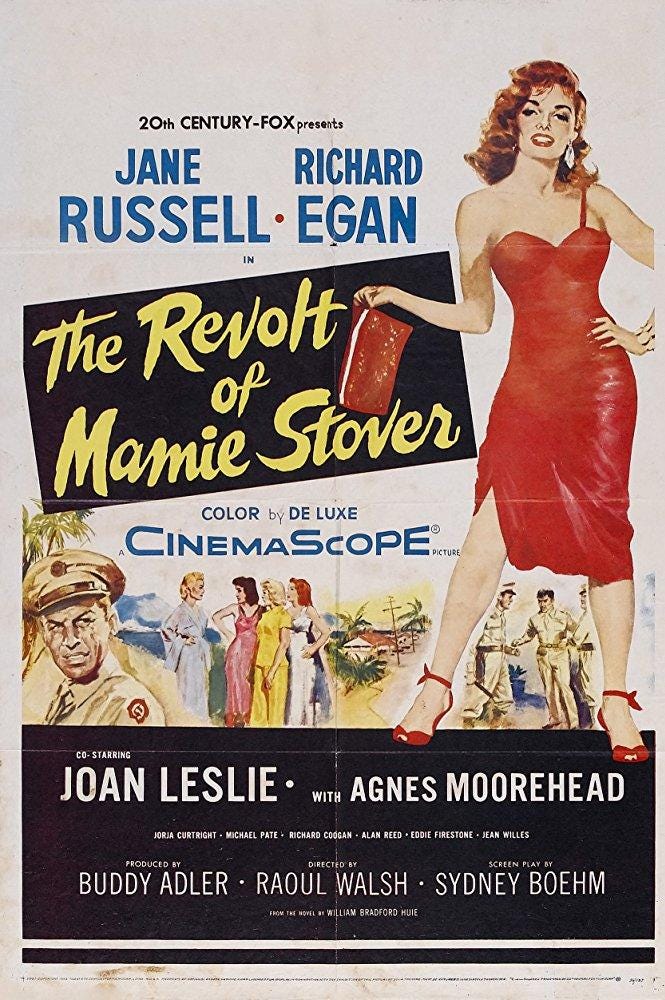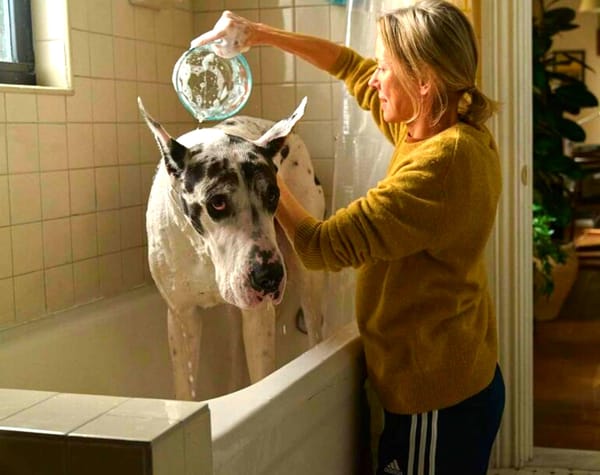"The Revolt of Mamie Stover"
The Jane Russell classic leaves Criterion Channel at the end of the month

If you’re a true-blue film lover, open to movies of all eras and nations, you probably subscribe to the Criterion Channel. And if you subscribe to the Criterion Channel, you know the end of the month can get rough. That’s when titles leave the service – in programming parlance, they’ve reached the end of their window – and you have to make Solomonic decisions as to what goodies to watch as the clock runs out. The folks at Criterion make this both easier and more fiendishly difficult by listing all the departing titles in a special section.
So: You’ve got two days left in August – what’s it gonna be? The forever scandalous John Waters cult items “Pink Flamingos” and “Female Trouble”? The 1972 Robert Redford heist comedy “The Hot Rock”? The certifiably bonkers “Pandora and the Flying Dutchman”? All the films in the channel’s Judy Holliday festival? What, you’ve never seen “Rock n’ Roll High School”?
Well, here’s the thing: You can still rent “Rock n’ Roll High School” on Amazon, Apple TV, and elsewhere, along with many others leaving Criterion at the end of the month. But some titles – like the Waters films and “Hot Rock” -- are headed into streaming limbo for who knows how long. So we’re back where we started: What’s it gonna be?

Last night I went with “The Revolt of Mamie Stover” (1956), one of the best and least known movies starring the ever-underrated Jane Russell. It’s a melodrama but a tough-minded one, and pretty outrageously frank about what Mamie Stover does for a living. An opulent visual feast in CinemaScope and DeLuxe color, the movie opens in 1941 with the heroine being escorted by the police out of San Francisco on a tramp steamer (emphasis on tramp) bound for Hawaii. Once there, she finds work as a “dance-hall girl” in what is patently a clip-joint/brothel run by a brilliantly bitchy Agnes Moorehead. The director’s Raoul Walsh, a man’s man of a filmmaker who treats this “women’s picture” with wit, gumption, and few illusions about his own gender’s hypocrisies when it comes to what we now call sex workers. The male lead, played by Richard Egan, cheats on his virginal upper-class girlfriend (Joan Leslie) without a second thought, because isn’t that what women like Mamie Stover are for? “Revolt” is cynical and remarkably modern in its insistence on the transactional nature of male-female relations: He wants sex, she wants money (i.e., security and power); for a while they’re content to call that love.

It doesn’t end well, and not just because the Japanese bomb Pearl Harbor in the third act. Anyway, Mamie has more hots for the Oahu real estate market than for any man; the movie doesn’t exactly celebrate her becoming a war profiteer, but it doesn’t condemn her, either. It’s not as if guys like Egan’s Jimmy or the U.S. soldiers who are portrayed one and all as leering idiots give her much choice.
Russell is great as Mamie – insolent and funny, guarding her heart like the embattled treasure it is. The actress was never well-served by the entertainment industry, which was always more obsessed with her body than her brains. She began her career directed by Howard Hughes in “The Outlaw” (1943), a Billy the Kid saga as dreadful as it was controversial, with Hughes making a fetish out of his new star’s breasts. (“I’ve seen a pair today the like of which I’ve never seen before in my life,” he allegedly told an associate. “Brother, am I going to exploit them. That’s what the morons who go to the movies want to see.”) 1953’s “The French Line” was a 3-D production that, we were told, would “knock both your eyes out.” By the 1980s, Russell was doing Playtex bra ads “for us full-figured gals.”
In fact, she was a fine actress and marvelous screen presence, possessed of a lazily scornful air that calls to mind a female Robert Mitchum, with whom she played in the nifty little noir from 1951, “His Kind of Woman.” (That film also leaves Criterion on August 31 but can be rented elsewhere.) Russell’s finest on-screen moment, of course, came with Marilyn Monroe in “Gentlemen Prefer Blondes” as the “two little girls from Little Rock,” far smarter than the rubes, boobs, old goats, and little boys who make up the male cast of Howard Hawks’ delightful film. “Gentlemen” plays the transactional nature of love and sex for comedy. “The Revolt of Mamie Stover” plays it for drama. Jane Russell just played for keeps.
If you enjoyed this edition of Ty Burr’s Watch List, please feel free to share it with friends.
Or subscribe. Thank you!





